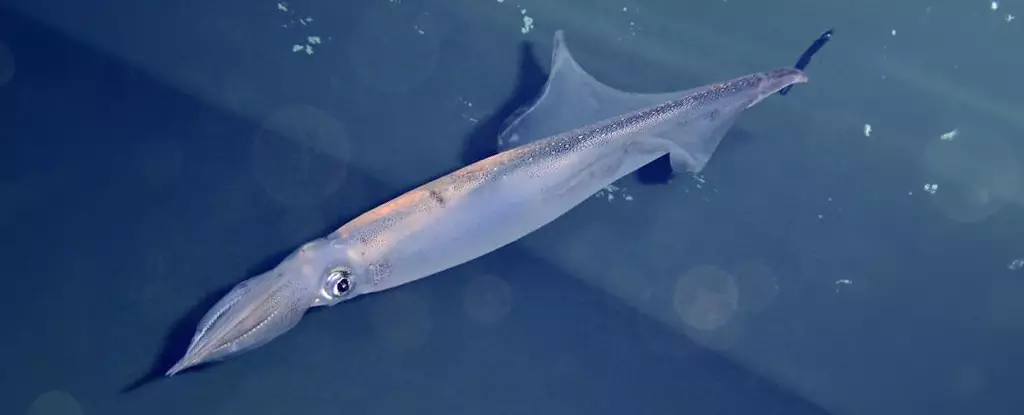In a recent study conducted by University of Tokyo marine biologist Shota Hosono and his colleagues, the influence of birthdate on mating behaviors in Japanese spear squid (Heterololigo bleekeri) was explored. The researchers found that male squid’s reproductive tactics were determined by the month they hatched, with early hatched squid exhibiting different mating strategies compared to those hatched later in the season.
The phenomenon observed in the squid population is known as the relative age effect, a concept that has previously been studied in human athletes and some species of teleost fish. The researchers discovered that male squid born early in the breeding season tended to grow larger and adopt the role of consorts, fighting off rivals to impregnate females. On the other hand, squid hatched later in the season were smaller and became ‘sneakers’, depositing sperm covertly on females with the hope of fertilizing their eggs.
This study marks the first time that evidence of the ‘birthdate hypothesis’ has been found in aquatic invertebrates, suggesting that male H. bleekeri are genetically predisposed to specific mating behaviors based on their hatching date. Despite variations in physical traits and growth rates, male squid stuck to their predetermined mating tactics, indicating a strong influence of birthdate on their life trajectory.
Environmental Factors
The researchers also considered the impact of environmental factors on the mating behaviors of squid. Birthdate plays a significant role in exposing squid to different environmental conditions during their early life stages, which may affect their growth trajectory and subsequent mating tactics. For example, extreme events such as marine heatwaves could influence squid’s mature body size and overall reproductive success. Understanding the interplay between genetic predisposition and environmental influences is crucial in unraveling the complexities of mating behaviors in squid.
The findings of this study have important implications for the conservation and management of squid populations. By recognizing the role of birthdate in shaping mating behaviors, researchers and conservationists can better predict and potentially mitigate the impact of environmental disturbances on squid reproduction. Furthermore, the study highlights the need for further research to untangle the intricate relationship between genetic factors and environmental conditions in determining mating strategies among marine species.
The study by Hosono and colleagues sheds light on the influence of birthdate on mating behaviors in Japanese spear squid. By uncovering the role of birthdate in determining male squid’s reproductive tactics, the researchers have provided valuable insights into the complex interactions between genetics, environment, and behavior in marine organisms. Further research in this area is essential to fully understand the mechanisms driving mating strategies in squid and other aquatic species.

Leave a Reply